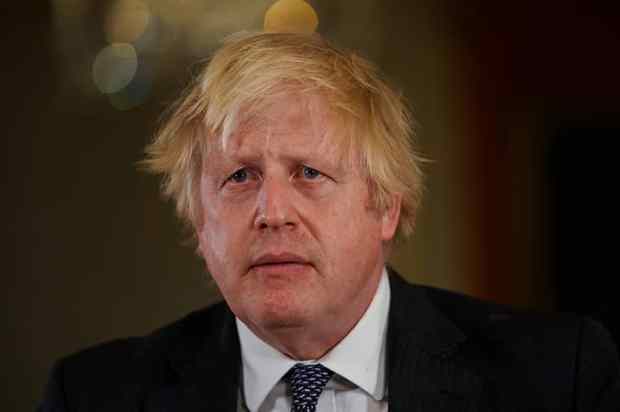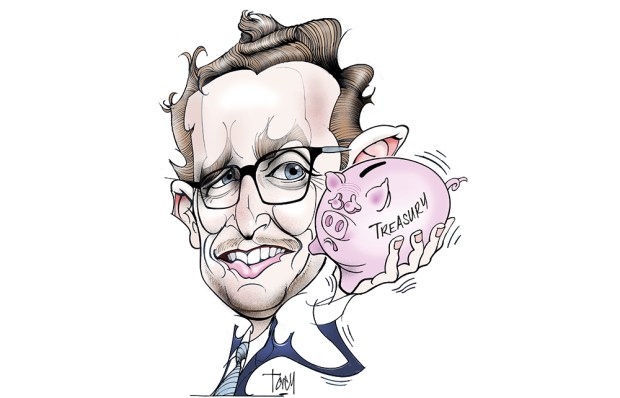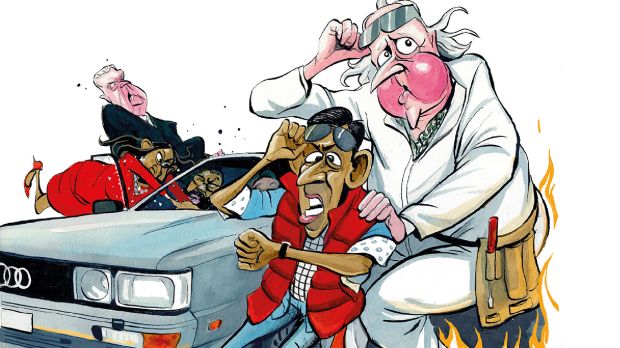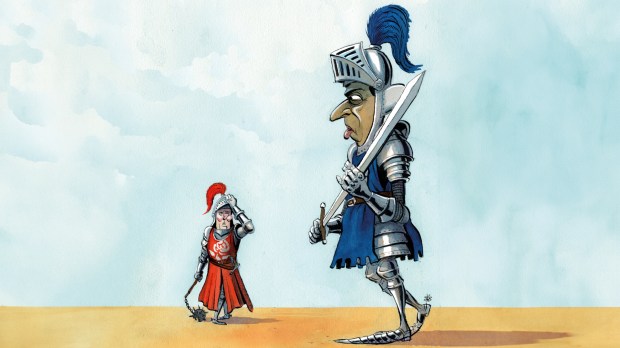On a cloudy Saturday in March, a group of unlikely characters gathered in an office near London’s Old Street for political training. A scientist, a prison officer, an army veteran and four economists were among them and they all hope to be elected as Labour MPs at the next election. A great many of them are expected to succeed. If today’s polls were to become tomorrow’s election result, there would be an influx of more than 200 new Labour MPs, doubling Keir Starmer’s parliamentary contingent to 450. The quality of those politicians will decide the nature of the next Labour government.
They are, very much, Starmer’s people. Since becoming leader, his main focus has been rooting out the Corbynite influence at every level of his party and finding moderates to replace the far left. His plan was to regain control over the apparatus and then focus on fighting the Tories. Jeremy Corbyn himself has been blocked from standing as a Labour candidate at the next election; Diane Abbott could be next. She has lost the party whip and is being investigated over her hastily retracted comments suggesting that Jews do not experience racism. ‘I’d be stunned if she was allowed to stand again,’ says one party aide.
If Starmer wins with a small majority, then much will depend on the coalition he would have to build with his party, which is why he has been so keen to nurture a new model army of backbenchers. His team have made it his business to know the politics of local Labour branches. Tony Blair once said this was his secret to success. ‘You really don’t have to worry about Jeremy Corbyn suddenly taking over,’ he said in 1996. ‘I know everything that’s going on in his constituency party.’ That Corbyn did indeed suddenly take over in 2015 means Starmer needs to go even further.
That’s why the selection for the first 100 Labour target seats – most of which are winnable – has been more tightly controlled than at any previous point in the party’s history. ‘The big thing for us coming in was 15 or 20 years ago candidates just didn’t matter so much,’ explains a Labour party figure. ‘Now with the media there is so much focus.’ A rogue Labour MP has the potential to cause a lot of damage to the party’s national reputation. Early on in Starmer’s leadership he told Mike Hill – the MP investigated over sexual misconduct allegations – to quit. This led to a by-election in Hartlepool which the Tories won. But Starmer’s team believed that getting rid of backbench liabilities was a mission worth the damage.
Now that most of the important battles have been won, many of the new faces waiting to come to the stage look almost like a Blairite and Brownite restoration. Momentum has lost momentum. Douglas Alexander, a former New Labour minister, is planning a comeback in the key Scottish target seat of East Lothian. But it’s the aides to Blair-era figures who are the main people making a return. Emma Reynolds, a special adviser who then became the MP for Wolverhampton North East until she lost her seat in 2019, is back to fight the more winnable target seat of Wycombe, currently held by Steve Baker. Kirsty McNeill, a former Gordon Brown aide, has been selected for a target seat, as has David Pinto-Duschinsky, once the right-hand man to Alistair Darling.
A few offspring of Blair-era luminaries are poised to take their places. Hamish Falconer, the eldest son of Lord Falconer, Blair’s former flatmate (and lord chancellor), has been selected for Lincoln. He is a member of the diplomatic service and an alumnus of Westminster School, Cambridge and Yale, and is already being talked up as one to watch. Then there’s the journalist Steve Richards’s son Jake, a barrister, standing in Rother Valley.
Allies of Starmer dispute the idea that these selections are factional – ‘it doesn’t matter if you love Tony Blair’ – and argue that Labour’s focus is on improving quality. Soon after Starmer won, a senior aide told colleagues the strategy was simple: ‘No more piss-poor candidates.’ There are a number selected for their life experience rather than longtime commitment to the cause. Former soldier and GB News contributor Mike Tapp has been selected to contest the high-profile seat of Dover and Deal against Tory incumbent Natalie Elphicke. He joined the Military Intelligence Corps at the age of 20, serving deployments in both Iraq and Afghanistan. He then moved to the National Crime Agency, ‘combating drug gangs, human traffickers and catching paedophiles’ in his own words. He would need a 12-point swing to win but polls suggest he is on course to achieve it.
As the moderates return, the money is close behind them. Bankrolling the Starmerarmy are many Blairites from the past: Waheed Alli as Labour’s head of election fundraising, with Lords Sainsbury and Levy back in the fold. Even Blair’s former manager for ‘high-value fundraising’, Vanessa Bowcock, has returned to a similar role in Starmer’s office. Staff at the Tony Blair Institute are expected to stage an exodus to become special advisers in any future Starmer government. ‘We’re preparing to be raided,’ says one TBI staffer.
With more than half the 200 required candidates chosen so far, Labour is well ahead of the Tories in the selection process. The left of the party is complaining of a rout. ‘It’s a takeover,’ says one triumphant Labour adviser. The vetting has been close. Social media accounts have been trawled through for any sign of problematic beliefs, perhaps not before time: at the last election, some 30 Labour candidates were accused either of anti-Semitism or of defending members facing similar allegations. A lack of vetting – or to quote one Labour MP, ‘a focus on ideology’ – led to a range of ‘crazy candidates’.
One Labour aide recalls initial optimism turning to horror on election night in 2017 as they printed off the CVs of the Labour MPs who had – to everyone’s shock – won their seats. Some of the craziness didn’t just verge on criminality but went over the line. Jared O’Mara, a Momentum-backed candidate who kicked Nick Clegg out of Sheffield Hallam, ended up being convicted on six counts of expenses fraud to fund his cocaine habit. Claudia Webbe, who held Leicester East for Labour last time, has received a suspended prison sentence for harassing her ex-partner’s lover.
This time, each applicant has been asked to disclose all their social media accounts, which are then checked by a team for anything that would bring the party into disrepute. One candidate was told by the machine: ‘You know we know everything about you.’ Disrepute can range from anti-Semitic posts, dodgy business dealings or simply offensive comments. Even candidates who win selection battles can be booted out if newspapers unearth embarrassing stories about them. Jerry Hague stood down in the safe seat of Bolsover after scrutiny of his legal career; Dominic Beck in Rother Valley pulled out after questions came up about his position on the local council during the Rotherham child abuse scandal.
Such hyper-scrutiny might have seen Labour’s Naz Shah – MP for Bradford West since 2015 – vetoed for sharing a post suggesting Israel should be relocated to America. The system would have also caught Lisa Forbes, who won Peterborough in a by-election in 2019 before losing it in the general election at the end of the year. She had to apologise ‘wholeheartedly’ for liking a social post claiming Theresa May had a ‘Zionist slave-masters agenda’.
But many of the hopefuls burned by the new selection process feel that it has gone beyond looking for obvious racism or anti-Semitism and is a new Starmerite political screening process. ‘The rules are inconsistent,’ says one disaffected figure. ‘They are picking people in their own image.’
Those with links to the left-wing grassroots or trade unions were once preferred. Now they are lucky to survive the appointment process. Of the candidates selected so far, only one – Faiza Shaheen, who narrowly missed beating Iain Duncan Smith last time in Chingford and Woodford Green – could be described as being Corbyn-sympathetic.
The battle for Bolton North East, a key Labour target, is another case in point. A local candidate, Leigh Drennan, a keen trade unionist who won the endorsement of Angela Rayner, the directly elected deputy leader, failed even to make the candidate list, due to a mysterious ‘due diligence’ issue. Charlotte Nichols, a neighbouring Labour MP, called it ‘one of the most blatantly factional examples of abuse of the process I’ve seen in the 15 years or so I’ve been a party member’.
There were similar protests over the longlist for Blair’s former seat of Sedgefield. Paul Daly, chairman of the Constituency Labour Party (CLP), said that the ‘Sedgefield stitch-up’ had seen him faulted for his ‘political judgment’. Twelve other local party officials resigned with him, saying in a statement that: ‘It has now become abundantly clear, beyond a shadow of a doubt, that the voice of the CLP, its officers and Sedgefield members as a whole are disposable to the party.’
There was similar uproar in Stroud when the party lost its leadership on a council coalition after councillors resigned in protest at a candidate being ‘parachuted in’. The obvious complaint is that the new Starmtroopers are careerist automatons who will drain the life out of the party. The journalist Michael Crick has been monitoring all the selections as part of his Tomorrow’s MPs project and worries that the purge of -mavericks will end up robbing the party of character. ‘People like Robin Cook and Angela Rayner and Neil Kinnock would never have got chosen in this round of selections,’ he has said.
The risk is that the result will be a homogeneity that offers an ideologically narrow spectrum. If Blair had screened out former communists and radicals, it would have meant no John Reid, no Alan Milburn – no New Labour. ‘This is an intake with a lot of junior ministers but not many leaders,’ says one Labour party old hand. But the hope in Starmer’s inner circle is that for now, only one leader is needed and the careful selection process will prevent the party lurching off course once again. ‘Win or lose the next election, the parliamentary party will be in a much stronger place,’ insists one party figure. The most important changes in Labour are happening now.
Got something to add? Join the discussion and comment below.
Get 10 issues for just $10
Subscribe to The Spectator Australia today for the next 10 magazine issues, plus full online access, for just $10.
You might disagree with half of it, but you’ll enjoy reading all of it. Try your first month for free, then just $2 a week for the remainder of your first year.















Comments
Don't miss out
Join the conversation with other Spectator Australia readers. Subscribe to leave a comment.
SUBSCRIBEAlready a subscriber? Log in